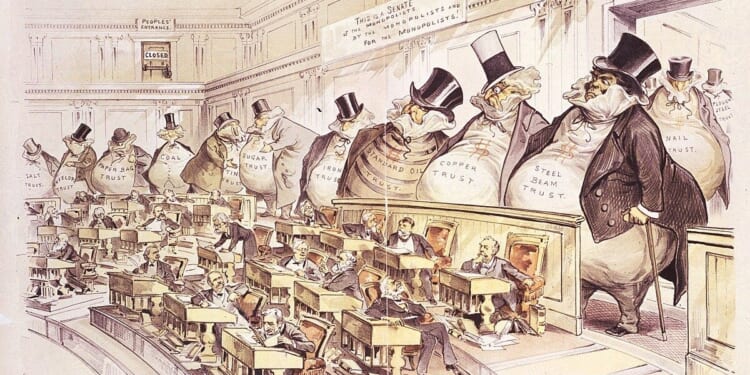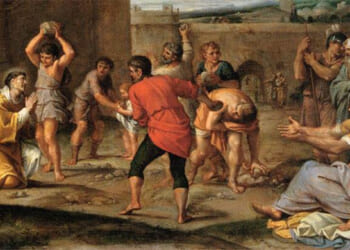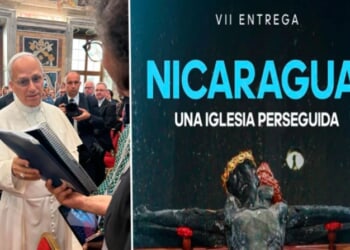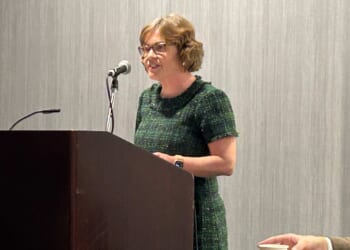A prelate gave a homily some weeks ago about widespread corruption in the government. His homily irritated some of his audience who took to social media to remind him that the Catholic Church too had its own issues of rampant corruption among her clergy. One commentator even cited the ongoing fraud, corruption, and coverup in the Vatican bank. Another commentator questioned the right of the bishop to call out corrupt politicians while ignoring the rot among the priests in his own diocese. In short, the bishop’s wise words about corruption were lost because of the unchecked moral and financial corruption in the Church.
Reflecting on this painful and embarrassing exchange on social media, I found myself wondering why we give in to corruption today? Why do educated people, many of them people of faith, become corrupt? How do we priests, who have no families to take care of, become corrupt? How do civil and religious leaders with so much respect throw away all their trustworthiness by falling into corruption?
I believe that that there are three main reasons why.
First, we do not have a real and trusting relationship with God as our loving Father.
We do not see ourselves as God’s beloved children, beneficiaries of His loving providence and guidance. If we see God as loving Father, we would trust in Him to provide for all our needs day by day. We would be truly content with what we have as we wait on God to provide for us after we have done all that we should.
Didn’t Jesus give us the right and command to call God our Father and to pray to Him, saying, “Give us this day our daily bread” (Mt. 6:11)? How could He ever disappoint us in our needs?
We may be baptized, receive Holy Communion often, be confirmed and ordained, and spend time reading our bibles, but still fail to see God as the loving Father who provides for all our needs. When we fail to see Him thus, we try to provide for ourselves at all cost in ways that disregard His laws, ignore the rights of others, and jeopardize our reputation. This is why we steal, lie, cheat, and become dishonest for the sake of material gain.
Secondly, we do not reflect deeply on the true purpose of material wealth in this life.
God gives us material wealth for the sake of being faithful in our relationship with Him and with others. We are to use these things to love and serve God and others for His sake. We become corrupt when we develop a disordered love for possessions and use people to gain more for ourselves.
The Jews faced God’s wrath because they had failed to realize this relational purpose of wealth. They make use of everything and anything, including the poor and their days of worship, for financial gain: “We will diminish the ephah, add to the shekel, and fix our scales for cheating. We will buy the lowly for a silver, and the poor for a pair of sandals, even the refuse of the wheat we will sell” (Amos 8:4-6).
The dishonest steward in Luke 16:1-13 abused the trust that his rich master had in him. But when he lost his stewardship, he underwent a change of heart from a selfish and wasteful person to one who would sacrifice some of his dishonest profit for the sake of gaining some relationships: “I know what I shall do so that, when I am removed from the stewardship, they may welcome me into their homes.” Jesus used him as an example to teach us that we are to use transient material wealth to attain enduring relationships, teaching, “I tell you, make friends for yourselves with dishonest wealth, so that when it fails, you will be welcomed into eternal dwellings.”
When our hearts are corrupt, we do not ask how our gain and use of wealth impact our relationship with God and with others. This is the foolishness that corruption brings.
Lastly, we do not think deeply about death, judgement, and eternity in heaven or in hell.
The unjust steward acted decisively when he thought of his end and what awaited him after his stewardship was over. Do we actually reflect on where we will spend eternity after our life of stewardship is over?
We all will stand before God on judgment day and give account of how we have made use of all our wealth. Have we been trustworthy in benefiting others with our wealth, or have we been busy accumulating and squandering wealth on ourselves? We will have no excuse before the God who knows what we have received from Him and what we have done with it, for “If you are not trustworthy with what belongs to another, who will give you what is yours?”
My dear brothers and sisters in Christ, in an age of corruption, it is very easy to point fingers and accuse others of being corrupt in the Church or in civil society, but let us remind ourselves that we, too, can slowly fall into corruption. A lie or an act of dishonesty today disposes and prepare us for more lies and dishonesty tomorrow. It is so easy to be influenced by the bad example of the dishonest ones among us. The temptation to become corrupt is strong when we see that the dishonest ones are becoming the majority and the most rewarded inside and outside the Church.
To overcome this temptation to join the corrupt crowd, let us remember that what brings us true and lasting peace is the quality of our relationships with God and others—not the size of our bank accounts or the comfort of our luxurious lifestyles. We are made for this perfect and unending relationship with God and with others in heaven, and we receive peace when we make these relationships our priority even now.
The good news is that God desires that we have this perfect peace through a life-giving relationship with Him and with others, for “God wills everyone to be saved and to come to the knowledge of the truth.” That truth is Jesus Christ, the one who was rich but chose to become poor “that by His poverty we might become rich” (2 Cor. 8:9). Our true wealth is nothing but our grace-filled relationship with God in Jesus Christ by the power of His Spirit. It is only by this grace of God that we can overcome all forms of corruption. In Jesus, this grace that we need is not lacking.
In this age of widespread corruption, we must hold our civil and Church leaders accountable and pray for them, as St. Paul teaches, “I ask that supplications, prayers, petitions, and thanksgiving be offered for everyone, for kings and for all in authority.” It is not our job to spread the accusations of corruption, but it is our job to pray for them and hold them accountable.
St. Paul also adds, “It is my wish, then, that in every place the men should pray, lifting up holy hands, without anger or argument” (1 Tim. 2:1-8). Instead of arguing about who is more corrupt, we must make sure that we are praying for all our leaders with “holy hands.” This means that we, too, must be resisting the temptation to be corrupt first. Our prayers for the conversion of the corrupt are useless when our own hands are stained by corrupt practices.
With good and honest accountability and fervent prayers for ourselves and for all others with truly “holy hands,” we can be trustworthy servants of God in the midst of so much corruption in the world and in the Church.
Glory to Jesus!!! Honor to Mary!!!
Image from Wikimedia Commons














